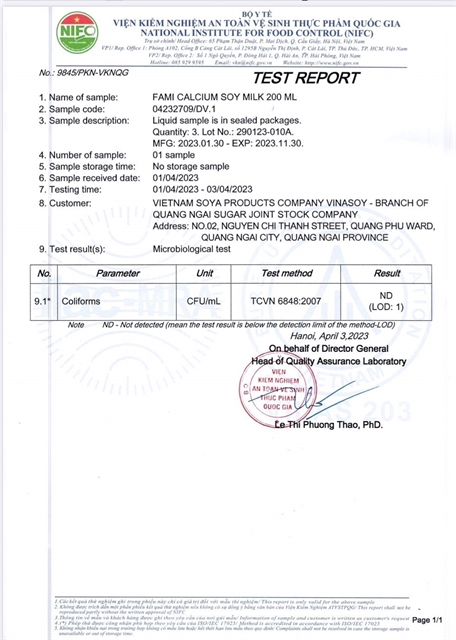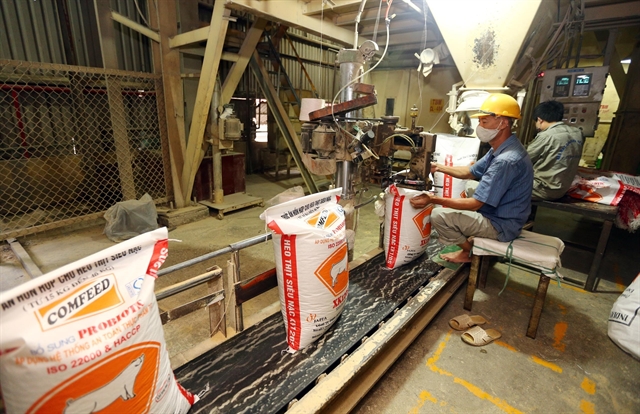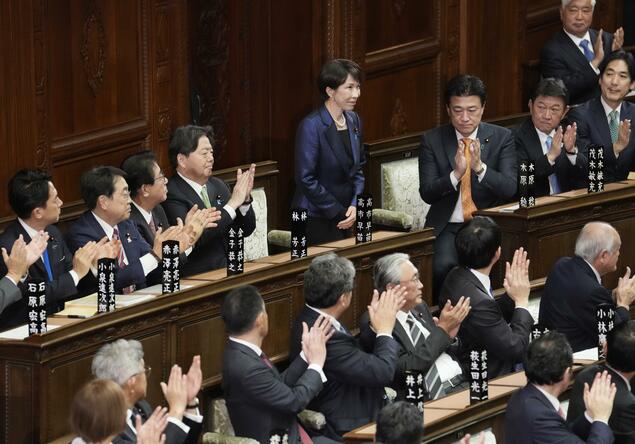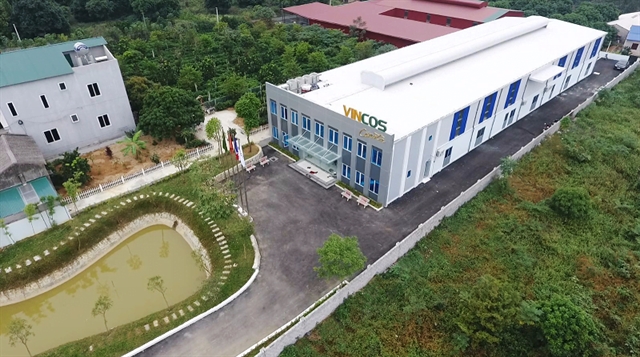 Economy
Economy

 |
| An animal feed packaging line at a Japfa Comfeed Vietnam Co., Ltd. factory in Thái Bình Province. This company and many other firms would be eligible for a preferential tax to import soybean meal. — VNA/VNS Photo |
HÀ NỘI — Many businesses in the animal feed and livestock industries have not been able to take advantage of preferential import taxes for soybean meal due to inconsistent commodity codes at customs clearance.
Businesses have sent their opinions on this issue to the Government Office, the Ministry of Finance and the Ministry of Agriculture and Rural Development.
The firms include CP Việt Nam, De Heus, Japfa Comfeed Việt Nam, Cargill Việt Nam, New Hope TP.HCM, Greenfeed Việt Nam, CJ Việt Nam, Dinh dưỡng Á Châu, Ba Huân, Sao Mai Super Feed, Nam Việt, Việt Thắng, CNC International NutritionC, Khai Anh Bình Thuận, GAD Việt Nam and Asia Goldman, according to the Ministry of Agriculture and Rural Development.
Previously, the Đồng Nai Province Livestock Association also made similar recommendations to State agencies.
The Government's Decree 144/2024/NĐ-CP setting a preferential import tax rate for soybean meal (commodity code 23040090) has reduced this tax from 2 per cent to 1 per cent, creating better conditions for the enterprises to maintain production.
However, after this decree took effect on December 16, the enterprises have not been able to enjoy the reduced tax rate due to inconsistent commodity codes at customs branches in some localities.
Specifically, the customs branches in HCM City and Bà Rịa - Vũng Tàu province have applied a commodity code of 23040029 for soybean meal with an import tax rate of 2 per cent.
This inconsistency in commodity codes increases costs, prolongs customs clearance time and causes difficulties in policy implementation, according to the enterprises.
Furthermore, the price of soybean meal in the global market increased by more than 12 per cent in the first half of December, increasing production costs for the enterprises.
The difference in import tax rates between countries that have free trade agreements with Việt Nam and a tax rate of zero and other countries makes it difficult for enterprises to access soybean meal supplies from countries like the US, Argentina and Brazil, which have stable output and quality.
Companies are also concerned that if this situation continues, the livestock and animal feed industries will face many major risks, including instability in output and competitive pressure on the global market.
To address this issue, they have recommended adjusting the preferential import tax rate for code 23040029 from 2 per cent to 1 per cent as code 23040090.
At the same time, businesses have proposed that the authorities refund import tax for shipments after December 16.
Resolving these shortcomings quickly will not only help reduce cost pressure for the livestock and animal feed industries, but also ensure stability in supply, thereby protecting the interests of businesses and farmers amid a challenging market.
According to a report from the Ministry of Agriculture and Rural Development, the output of animal feed in 2024 reached 21.5 million tonnes, up 3.4 per cent year-on-year. Of this, 55.3 per cent was for pigs, 40.9 per cent for poultry, and the rest for other livestock.
However, domestic animal feed production is still heavily dependent on imported raw materials, accounting for more than 65 per cent of raw materials and more than 90 per cent of supplementary feed. — VNS




